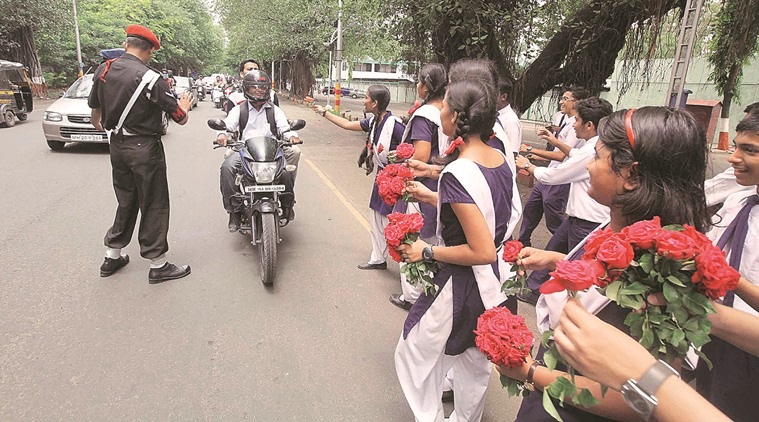 Inside the Pune Cantonment area. (Express photo by Pavan Khengre)
Inside the Pune Cantonment area. (Express photo by Pavan Khengre)
The Defence Ministry’s recent decision to let civilians access roads in military cantonments across the country — which has ruffled feathers among the military community and even prompted a signature campaign by wives of Army officers — was taken after strong, “emotional” requests from several MPs.
On May 4, Defence Minister Nirmala Sitharaman held a meeting with MPs and elected vice-presidents of all the 62 Cantonment Boards across the country, along with senior officials of the ministry, Army Headquarters and Directorate General of Defence Estates, following which, on May 21, the Army Headquarters issued a letter that said, “All barriers, check-posts and roadblocks will be removed. Vehicles will not be stopped or checked.”
Sources told The Sunday Express that at the meeting with the minister, many MPs and Cantonment Board members expressed anguish at the “inconvenience” suffered by the public due to the closure of roads in cantonments.
Some of the MPs who took up the issue of closed roads were Raghu Sharma (Ajmer), Vincent Pala (Shillong), Ratan Lal Kataria (Ambala), Hemant Godse (Deolali), Ram Kripal Yadav (Danapur), Dilip Gandhi (Ahmednagar), Santosh Gangwar (Bareilly), Rajinder Aggarwal (Meerut) and Vivek Tankha (Jabalpur), besides Secunderabad MLA N V S S Prabhakar.
“The meeting became very emotional. Instances of access to these roads being denied, even in extremely compelling circumstances such as a medical emergency or a funeral procession, came up,” said an official present at the meeting.
Sources said 52 roads in 22 cantonments were “fully closed” and 47 roads in 15 cantonments were “partially closed” by the Army. Some of these roads have been closed for almost two decades, they said. For instance, Maulana Azad Marg Road in Allahabad Cantonment has remained closed since 1998, they added.
The Army asked for certain roads in four cantonments — Badami Bagh Cantonment in Srinagar, Satwari road at Jammu, Cannanore Cantonment and Delhi Cantonment – to be exempt from the order due to security reasons. Barring these four, all closed roads in cantonments across India were ordered by the minister to be reopened immediately.
Sitharaman also passed instructions that further closure of roads, as and when undertaken, would be done after strictly following prescribed procedure. The Directorate General of Land Works and Environment in the Army Headquarters is preparing a simplified SOP on road closure to jointly address the needs and concerns of military establishments and the convenience of the public.
But many serving military personnel and ex-servicemen have taken umbrage to the order, arguing that it poses a security risk to the army personnel and their families.
Wives of Army officers across the nation have launched a signature campaign — titled “Say no to opening Cantonment roads to public. Support the real guardians of the nation” — against the Defence Ministry’s decision.
The women said they had to take the lead as their officer-husbands could not have openly voiced their opinion against the government’s decision. They also said they would meet the Defence Minister and write to the PM and President, asking for the order to be reversed.
Samidha Dwivedi, wife of another Army officer, said the order had “ripped” soldiers of their “dignity”. “Who will account for the safety of so many families? There are times when husbands have to go for temporary duties and leave their families behind for one or two months. How can you expect a man to go on duty when he doesn’t feel that his family is safe,” she said.
Anjali Deswal, another Army wife, said, “The security of cantonments is of utmost importance because, apart from defence equipment, the families of soldiers living there can be soft targets for anti-social elements. A peep inside our cantonments can give away a lot of information about how we live and how we do things. Our soliders too can be made easy targets like it happened in Ratnuchak, Pathankot and other Cantts.”
Former Northern Army Commander Lt General HS Panag (retd), however, said, “Most people have not read the Cantonment Board Act of 1924, as amended in 2006. The Cantonments were conceived as townships and not exclusively as military stations. There are various types of land inside a Cantonment and only Type A land is exclusively for the military, which can be fenced and access denied to civilians.”